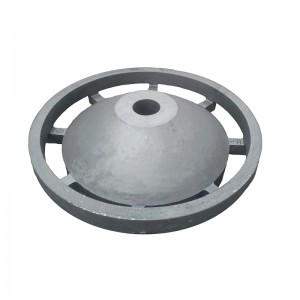- Afrikaans
- Albanian
- Amharic
- Arabic
- Armenian
- Azerbaijani
- Basque
- Belarusian
- Bengali
- Bosnian
- Bulgarian
- Catalan
- Cebuano
- China
- China (Taiwan)
- Corsican
- Croatian
- Czech
- Danish
- Dutch
- English
- Esperanto
- Estonian
- Finnish
- French
- Frisian
- Galician
- Georgian
- German
- Greek
- Gujarati
- Haitian Creole
- hausa
- hawaiian
- Hebrew
- Hindi
- Miao
- Hungarian
- Icelandic
- igbo
- Indonesian
- irish
- Italian
- Japanese
- Javanese
- Kannada
- kazakh
- Khmer
- Rwandese
- Korean
- Kurdish
- Kyrgyz
- Lao
- Latin
- Latvian
- Lithuanian
- Luxembourgish
- Macedonian
- Malgashi
- Malay
- Malayalam
- Maltese
- Maori
- Marathi
- Mongolian
- Myanmar
- Nepali
- Norwegian
- Norwegian
- Occitan
- Pashto
- Persian
- Polish
- Portuguese
- Punjabi
- Romanian
- Russian
- Samoan
- Scottish Gaelic
- Serbian
- Sesotho
- Shona
- Sindhi
- Sinhala
- Slovak
- Slovenian
- Somali
- Spanish
- Sundanese
- Swahili
- Swedish
- Tagalog
- Tajik
- Tamil
- Tatar
- Telugu
- Thai
- Turkish
- Turkmen
- Ukrainian
- Urdu
- Uighur
- Uzbek
- Vietnamese
- Welsh
- Bantu
- Yiddish
- Yoruba
- Zulu
Oct . 12, 2024 04:16 Back to list
Optimizing Production Efficiency in Modern Machining Facilities and Factories
The Modern Machining Factory A Pillar of Precision Engineering
In today's industrial landscape, machining factories are pivotal in the production of high-precision components that serve various sectors, including automotive, aerospace, electronics, and medical devices. The significance of machining lies not just in its capacity to produce, but also in its role as a cornerstone of innovation and technological advancement. This article delves into the multifaceted aspects of a modern machining factory, exploring its processes, technologies, and contributions to the economy.
At the heart of a machining factory is a variety of machinery designed to remove material from a workpiece to achieve the desired shape and specifications. Common processes include turning, milling, drilling, and grinding. Each technique has its unique applications, benefits, and suitability for different materials, ranging from metals to plastics. The choice of machining process depends on factors such as the complexity of the shape, tolerances required, and the material properties.
One of the hallmarks of a modern machining factory is the integration of advanced technologies like Computer Numerical Control (CNC) machining. CNC machines automate the manufacturing process, improving both efficiency and accuracy. They rely on computer programs to guide tools, allowing for complex shapes to be produced consistently and rapidly. This automation minimizes human error and enhances repeatability, making CNC machining indispensable in high-demand production environments.
The concept of Industry 4.0 is also making waves in machining factories. This fourth industrial revolution integrates cyber-physical systems, the Internet of Things (IoT), cloud computing, and cognitive computing into manufacturing processes. By connecting machines through the IoT, manufacturers can gather real-time data on machine performance, production quality, and process efficiency. This data-driven approach facilitates predictive maintenance, reducing downtime and improving overall productivity. Additionally, cloud-based solutions enable easier access to information and collaboration across different departments and locations.
machining factory

Quality assurance is paramount in machining factories, where precision is not just a goal but a necessity. Implementing robust quality control measures is essential to uphold industry standards and client expectations. Techniques such as Statistical Process Control (SPC) and advanced measurement systems like laser scanning and coordinate measuring machines (CMM) help ensure that products meet exact specifications. Continuous improvement methodologies, such as Lean and Six Sigma, are often employed to refine processes, reduce waste, and enhance product quality.
Sustainability is another key focus in modern machining operations. As industries gear towards eco-friendliness, machining factories are adopting sustainable practices. These include optimizing energy consumption, utilizing biodegradable cutting fluids, recycling waste materials, and implementing comprehensive supply chain strategies to minimize their carbon footprint. Emphasizing sustainability not only helps in regulatory compliance but also enhances the brand image and competitiveness in a market that increasingly values environmental responsibility.
Furthermore, the workforce plays an essential role in the success of a machining factory. Skilled machinists and engineers are crucial for operating advanced machinery and solving complex problems that arise during production. Therefore, continuous training and development are necessary to keep pace with technological advancements and to maintain a skilled labor force. Apprenticeship programs, partnerships with educational institutions, and on-the-job training are strategies employed by many factories to cultivate talent.
In conclusion, machining factories are vital contributors to modern manufacturing, combining technology, skilled labor, and process optimization to produce high-precision components. As they adapt to innovations like CNC machining and Industry 4.0, these factories not only enhance operational efficiency but also promote quality and sustainability. Looking ahead, the machining industry must continue to evolve and invest in advanced technologies and skilled talent to meet the growing demands of a dynamic market. By doing so, they will not only sustain their relevance but also drive the future of manufacturing excellence.
-
8mm Thin-Walled Cast Steel Manhole Cover Pallet Bottom Ring | Durable
NewsAug.04,2025
-
Premium Cast Iron Water Main Pipe: Durable, Corrosion-Resistant
NewsAug.03,2025
-
Durable Cast Iron Water Mains | AI-Optimized Systems
NewsAug.02,2025
-
High-Efficiency Propane Boiler for Baseboard Heat | Save Energy
NewsAug.01,2025
-
Premium Source Suppliers for Various Gray Iron Castings
NewsJul.31,2025
-
Durable Cast Iron Water Main Pipes | Long-Lasting
NewsJul.31,2025


